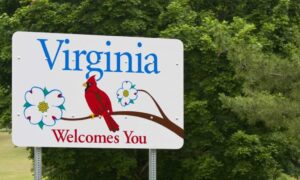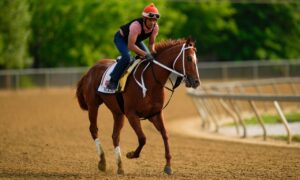
Virginia is utilizing self-exclusion lists as part of their efforts to promote responsible gambling among individuals.
The Voluntary Exclusion Program in Virginia empowers individuals to voluntarily include themselves in a self-exclusion list. Subsequently, this list is utilized by Virginia gambling license holders to safeguard against the involvement of these individuals in detrimental gambling activities.
People with a diagnosed gambling addiction or concerns about showing symptoms have the option to enroll for a duration of two or five years, or for a lifetime.
How many Virginians are on the self-exclusion list?
Upon registration, the Virginia Lottery will confidentially share your information with all licensees and sports betting permit holders. Being added to this list prevents you from engaging in gambling activities with any of them. Additionally, you will no longer receive any mailings or solicitations.
According to PlayVirginia, John Hagerty, the spokesperson for the Virginia Lottery, mentioned that the numbers are constantly fluctuating. Nevertheless, as of the middle of March:
- A total of 97 individuals had voluntarily excluded themselves for a period of two years.
- A total of 127 individuals had voluntarily excluded themselves for a duration of five years.
- One resident has registered for a lifetime self-exclusion program.
You have the option to complete the self-exclusion process online for a duration of either two or five years. Nevertheless, if you choose a lifetime exclusion period, it is necessary to do it in-person with a specialist.
The list cannot be signed up for by a spouse or loved one.
After the specified time period and upon filing a formal appeal, it is possible to have your name taken off the list. In the event that you engage in gambling activities while under self-exclusion, any winnings you obtain may be confiscated and directed towards the Commonwealth’s Problem Gambling Treatment and Support Fund.
In observance of Problem Gambling Awareness Month, stakeholders across the country are showcasing diverse programs and educational initiatives aimed at tackling the issue.
How does the VA program compare to other states?
As the number of states expanding betting opportunities for their residents continues to grow, they are concurrently introducing self-exclusion systems aimed at assisting individuals grappling with addiction.
The Maryland Voluntary Exclusion Program, located in the northern region, is a completely optional and cost-free initiative. Individuals are required to complete the necessary paperwork in person, and they can choose a duration of either a lifetime or a two-year period. This program solely pertains to participation in Maryland casinos or the Maryland Lottery.
All gaming licensees in Connecticut receive shared information. Additionally, individuals are prohibited from accessing land-based properties, online gambling, and online sportsbooks. The duration of the ban can vary from one year to five years, or even extend for a lifetime.
Enrollment in the Massachusetts exclusion program can be done via phone or online. By registering, individuals are granted exclusion from the gaming floor or any Massachusetts casinos. This choice can be made for either one year or for a lifetime.
In Nevada, there is no state-wide exclusion program provided by the government. Instead, the responsibility of implementing such programs lies with the individual gaming licensees. However, Caesars/William Hill has taken the initiative to establish a comprehensive self-exclusion program across their entire company. This program offers individuals the option to exclude themselves from gambling activities for a duration of one year, five years, or for their entire lifetime.
Spotting signs of problem gambling
There are various manifestations of problem gambling, yet it ultimately falls under the category of addiction, which can be treated. A responsible gambler is defined as someone who remains within their financial limits and avoids taking extreme measures to sustain their gambling habit.
Nevadacouncil.org released a compilation of indicators to help identify if your gambling habits have become irresponsible. Some of these warning signs include:
- Using gambling as a means to avoid or alleviate worry or trouble.
- Gambling as a means to resolve financial difficulties.
- Regardless of whether they are winning or losing, they are unable to stop playing.
- With only one dollar left, risking it all in gambling.
- Missing work because of gambling.
- Taking out a loan to settle gambling debts
- Neglecting familial obligations due to a gambling addiction.
- Engaging in deceit regarding the amount of time and money devoted to gambling.
Resources for those struggling with gambling
The VA Lottery offers easy avenues for gamblers to connect with supportive counselors who are eager to assist.
If concerns about potential gambling addiction trouble you, feel free to dial 1-888-532-3500 for a conversation with a person who can provide assistance.
The Gamblers Anonymous organization continues to be a prominent source of support for those struggling with a gambling dependency. GA holds meetings nationwide, making it easily accessible for individuals seeking assistance. To locate a meeting near you, simply navigate to the Gamblers Anonymous website and conduct a search.






